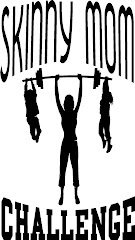Many people believe if they restrict daily calorie intake to
a ridiculously low amount they will lose weight or fat. This is a common misconception so don’t fall
victim to this myth. During the
beginning of weight loss our body is typically eliminating water and
unfortunately breaking down muscle. Unfortunately people believe if they cut calories
excessively they will lose weight; sadly this is untrue. Instead the body becomes a fat storing
machine. Why? I’ve talked about this many times but it is
our natural safety mechanism. Extreme
calorie restriction often known as Anorexia Nervosa causes major health
problems and bone density is decreased.
An overweight person has an increased risk of bone density
decreasing. This decreased bone density
increases the risk of stress fractures or complete fractures in bones. Excessive weight loss decreases muscle
mass. Muscle is very important to our
body because muscles help us move. Bones
are the foundation of the body but the muscles attached to the bones are what
helps us move. As we begin to age, as
early as our twenties we begin to lose a small percentage of muscle mass each
year. This percentage of muscle mass is
increased for sedentary people or excessive calorie cutters with poor diets. Think about your grandparents or great
parents; were they physically active throughout their senior lives? Were your grandparents frail and unable to
walk without shuffling or struggle to do daily tasks? It’s important that we maintain our independence
as long as possible.
How to start the path of eating healthy and exercising
daily? It must start with you. It can’t
be a doctor using scare tactics or family members teasing. The want to change must happen within or it
won’t happen. Are you ready to make a commitment to
change? Why do you want to make a
change? Are you doing this for yourself
or someone else?
Here is a thought, what if instead of focusing on calories
we focused on servings of fruits, vegetables, lean proteins and good fats. In addition to focusing on fats, vegetables,
fruits, lean proteins include food timing, and emotions. When
you sit down to eat write down how you feel.
Are you sad, angry, tired, nervous or happy? How much water have you drank? Did you exercise? Exercise will increase the need for more
foods to be consumed to help repair the body and promote good immunity. When the body becomes worn down from lack of
sleep or hard workouts the risk of colds and illnesses increases. Does counting calories drive you crazy? Losing weight is as simple as being aware of
the foods we put into our mouth. If you
eat lunch and dinner out every evening that’s a poor eating habit. Think of how much weight you could lose if you
cooked meals at home. Eating breakfast
every morning can decrease the chances of excessive eating at lunch. Adding a snack around 2:30 -3:00 can also
decrease the likelihood of overeating at dinner. These
are simple tasks that will go a long way when trying to reach a weight loss or
health goal. Don’t drive yourself crazy counting
calories; if you eat wholesome foods such as fruits, vegetables, nuts, Greek
yogurts, and lean proteins you will lose weight. Try to set a goal to eliminate
the amount of foods you eat from packages.
Here are some goals that might
help.
Set Goals:
1.
I will eat 2 servings of fruits and 6 -8
servings of vegetables a day. (TRACK IT)
2.
I will take my lunch to work every day.
3.
I will set a timer for every 2.5-3 hours to eat
very small meals/snacks
4.
I will eliminate pops or bad beverages; mochas, Frappuccino’s
etc.
5.
I will eat a protein, fat and carbohydrate at
each meal.
6.
I will eat breakfast each morning.
Big Goal:
1.
I will lose one pound per week by eating a nutritious
diet that consists of proteins, carbs and fats at each meal. I will resistance train two days per week and
complete 30 minutes of cardiorespiratory exercises for the first two
weeks. After two weeks I will increase
my duration or intensity by 10 percent.
SMART goals
Specific
Measurable
Action oriented
Realistic
Time (deadline)
These are small goals that can be
easily achieved. Focus on one goal each
week instead of trying to do everything at once. Set SMART goals and mark your calendar! You can do it!! For one on one coaching contact me.


No comments:
Post a Comment